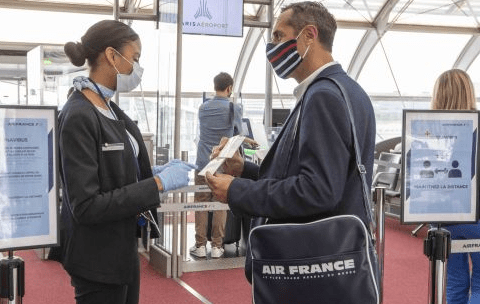The impact and recovery of Covid-19 in European air transport will be worse than in other regions, the International Air Transport Association (IATA) projected.
This indicates a further deterioration in income, job prospects and economic activity in air transport across the continent.
The health crisis caused by Covid-19 challenged the airline industry considerably during 2020.
The sanitary measures of quarantine, social distancing and border closures have caused the worst economic crisis since World War II. These travel bans and lockdowns on all continents have had dramatic effects on the demand for air travel, as well as the commercial operations of airlines.
The latest IATA economic forecast reveals that in 2021 Europe is expected to be the most affected world region in terms of airline losses (- $ 11.9 billion) and EBIT margin (-9.5 percent).
IATA estimates that passenger traffic (measured in passengers per revenue kilometer, RPK) has fallen 70% this year, the worst performance of any region except Africa (-72%) and the Middle East (-73% ).
Also IATA expects RPK’s growth next year to be a weak 47.5%, behind comparable regions of Asia Pacific (50%) and North America (60.5%).
Among the largest European airlines are Ryanair, Lufthansa Group, International Airlines Group, Air France-KLM, Easyjet and Turkish Airlines.
Air Transport
“Our projections for this year and next are a disaster for European air transport. Border restrictions and quarantine measures have stalled demand and the region has been hit even worse than most other parts of the world. There is optimism about a vaccine, but as our forecast for next year shows, this is unlikely to come in time to avoid hundreds of thousands of job losses in the industry unless governments take immediate action. The focus must remain on rapid passenger testing so that quarantine can be removed and borders safely opened, ”said Rafael Schvartzman, IATA Regional Vice President for Europe.
Connectivity
An in-depth look at impacts nationwide reveals that the outlook for passenger numbers and industry revenue has declined across the board since the August analysis.
This inevitably generates a greater number of jobs at risk and negative economic impacts.

Across Europe as a whole, more than 7 million jobs have been lost or are at imminent risk due to the closure of Covid-19.
The impact of travel restrictions and quarantine on travel demand is clear. The reserves within the European Union are 81% less for the period until January 10, 2021 compared to the usual curve.
The economic recovery will be hampered by the loss of connectivity that European cities are feeling. Since 2019, total connectivity has decreased by 68% in Frankfurt, 67% in London, 67% in Paris, 66% in Istanbul, 64% in Moscow and 53% in Amsterdam.
![]()

